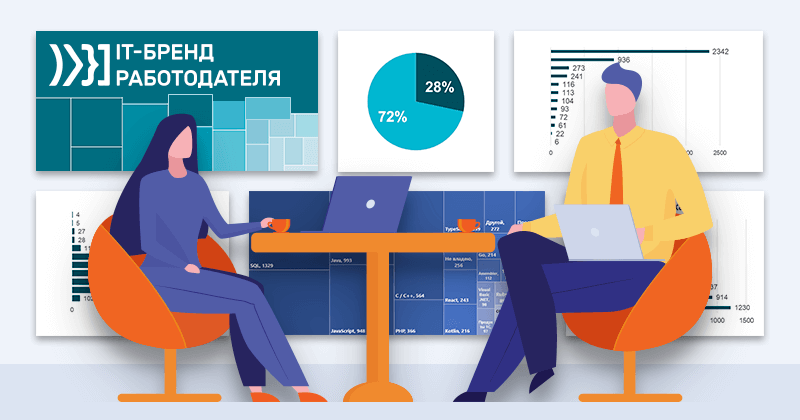
Hello! In July, Habr and ECOPSY announced the start of a study of employers' IT brands. We have collected and processed everything that you told us about Russian IT companies, summed up the results and will soon name the employers with the strongest IT brands this year. We have a lot of interesting data, so let's divide it into several posts. In this we will show how the “average Russian IT specialist” turned out in 2020: part of the questionnaire contained general questions about respondents and their field of activity, and it is these data that will help us now. So, for details under cat.
The sample, on the basis of which we are summing up the results, turned out to be quite representative: 4,720 people participated in the final study, which, in principle, allows us to draw conclusions about the general portrait of market inhabitants. There were even more questionnaires, but we considered only those in which we evaluated at least one employer, and took into account the filling time: in our experience, if the survey was completed suspiciously quickly, it could be random or a situation when someone came to check out the questionnaire and did not filled it out to the end.
Let's see what the collective image of the IT community looks like in 2020.
The first interesting fact: there are much more girls among IT specialists . If 3-4 years ago on Habré they were less than 15% of all users, then in our survey this indicator reached 28%.
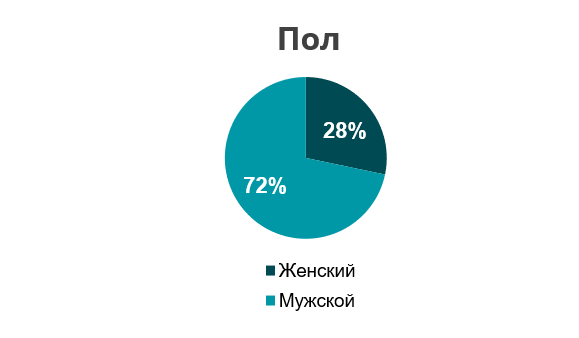
As before, the backbone of the IT market is young professionals . Among the survey participants were people of all ages - from 20 to 50 years old, but the lion's share of the audience - in the range of 20–35 years.
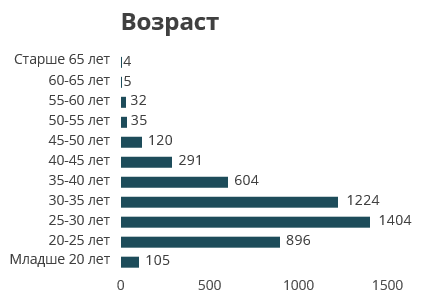
Our numbers showed that most of the active IT people live in Moscow, St. Petersburg and (surprise!) Voronezh. The rest of the cities participated in the survey less actively, and we combined them by federal district. We could not assess how IT specialists from the Far Eastern and North Caucasian Federal Districts relate to employers: we received too little data from them.
The IT industry is huge. So that IT specialists could adequately assess employers, we consulted with experts and divided the respondents into 11 groups by areas of activity. The questionnaire allowed choosing several options and evaluating companies from different groups. It turned out that most IT specialists work in the field of development and system integration, followed by consulting and telecom.
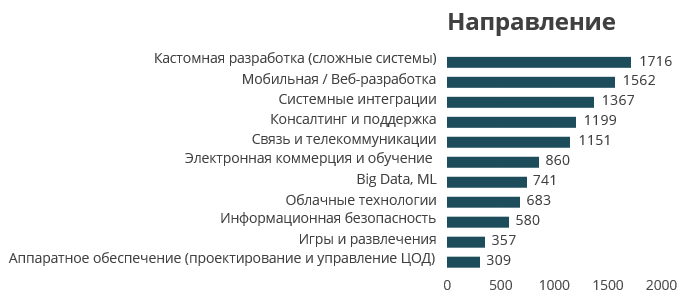
Among those who voted on qualifications, there were enough people at all levels - from Juns to top managers. The respondents rarely chose intern qualifications: it seems that IT specialists are more accustomed to calling themselves junior even in internship positions.

The most interesting thing for us was to look at the section by specialization. In this and the next questions, it was possible to choose several answers, therefore the total number is more than 4 720.
We were afraid that in many areas we might not have enough respondents, but our fears turned out to be in vain: only sales were not enough, all the others voted actively enough to get a representative sample. Most of the surveyed IT specialists are, of course, developers.
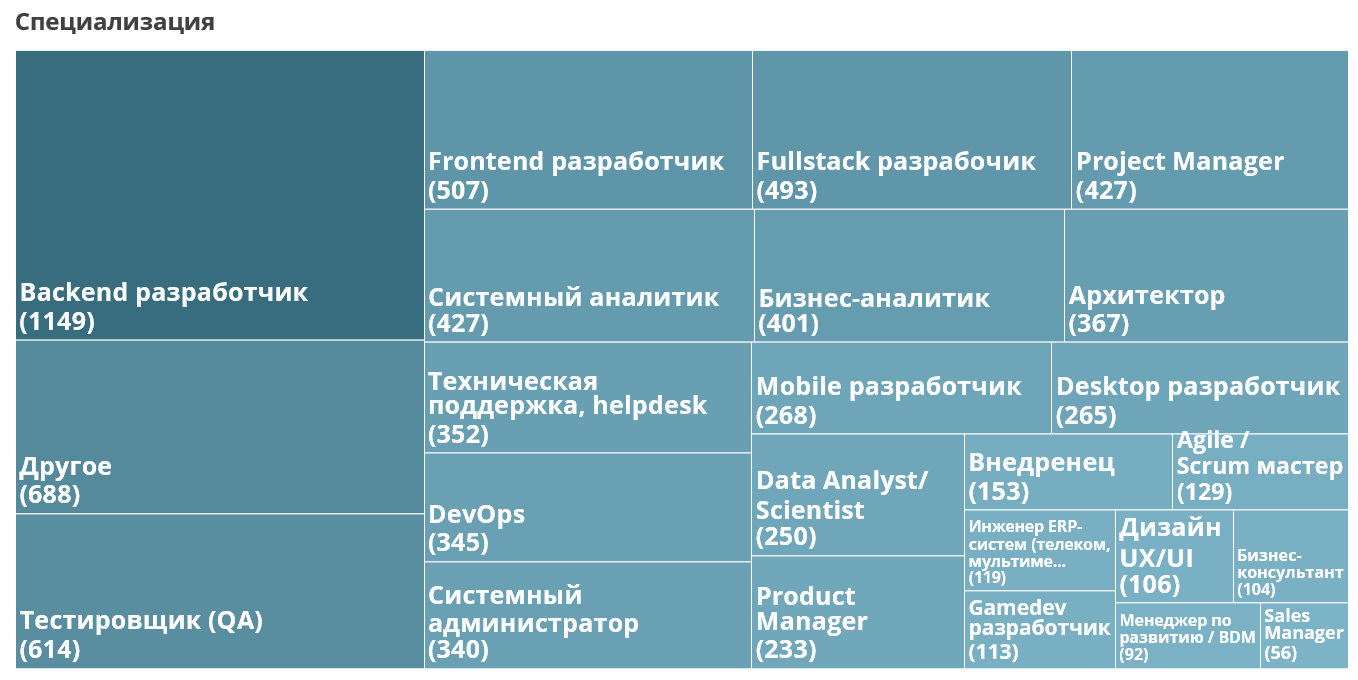
Finally, a little about languages. The survey data showed that Perl, Rust, Haskell and Erlang are the least used. For the rest of the languages, the sample turned out to be representative, with the most popular being SQL and Python.
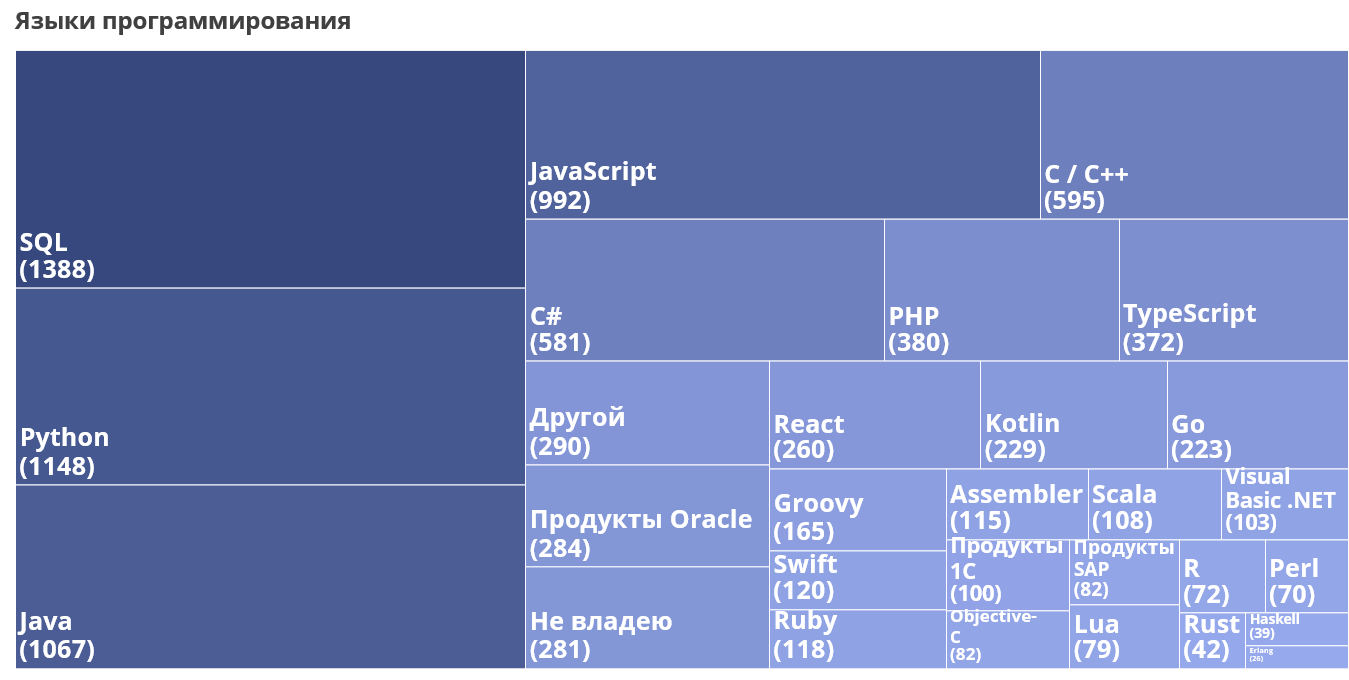
This is how we saw IT people in 2020. Thanks to every Habravchanin who spent his time, spoke honestly about employers and gave us detailed comments about the interface of the questionnaire under our previous posts. Next year we will expand the research passport to take into account errors and shortcomings.
It's cool that we had caring partners who helped with the involvement of respondents and provided information support. Ontiko, Open Data Science, Innopolis University, MISiS, ITMO, TPU, MEPhI, MIPT and others - you are the fire. On November 25, the next post will be released, in which we will show the rating of the strength of IT brands of employers and tell you what criteria hackers consider the most important when choosing a job. Subscribe to our blog not to miss.
Post preparedArtmanin and VikKaN...